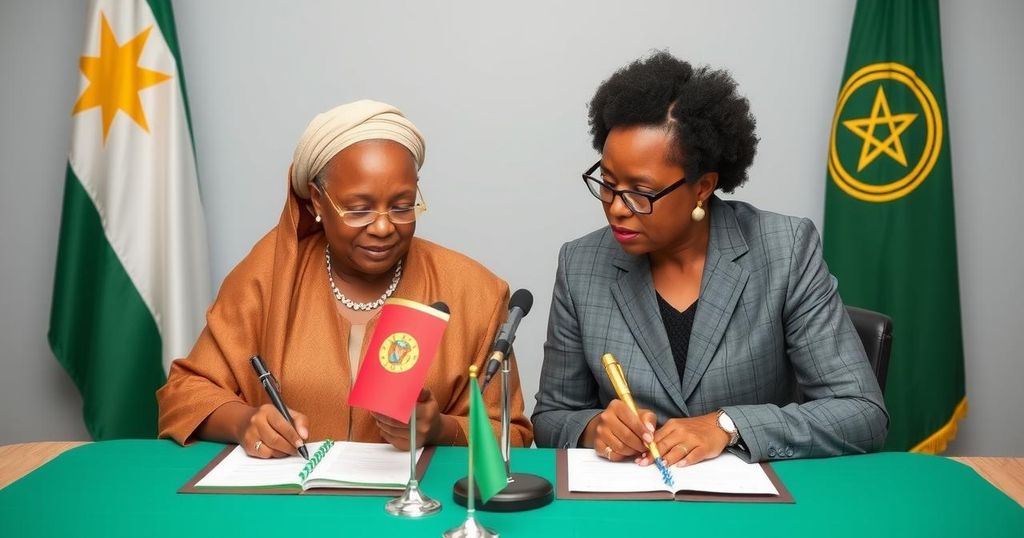The African Union urges Ethiopia and Somalia to promptly implement an agreement designed to ease tensions over Ethiopia’s sea access. The deal, stemming from a January agreement with Somaliland, aims to foster cooperation while acknowledging Somalia’s sovereignty. Turkish mediation has played a significant role in reaching this understanding, emphasizing mutual interests in peace and stability.
The African Union has called for the immediate implementation of a pivotal agreement between Ethiopia and Somalia aimed at reducing tensions over Ethiopia’s access to the sea. This stemmed from Ethiopia’s controversial agreement with Somaliland, a breakaway region of Somalia, regarding a port development. In response to international concerns regarding sovereignty and potential conflict, the agreement announced in Ankara seeks to foster cooperation between the two nations and ensure stability in the region. Turkish President Recep Tayyip Erdogan’s mediation was pivotal in facilitating this “historic” agreement, which aims to solidify Ethiopia’s much-desired maritime access while recognizing Somalia’s sovereignty.
Notably, Ethiopian Prime Minister Abiy Ahmed and Somali President Hassan Sheikh Mohamud engaged in discussions, emphasizing shared interests in peace and regional stability. The agreement stipulates the initiation of technical talks to be concluded by the end of April, with a commitment to resolve outstanding issues through dialogue, potentially supported by Turkey. The agreement illustrates a mutual commitment to overcoming previous disputes; however, the existing memorandum of understanding between Ethiopia and Somaliland remains a contentious point that has not been publicly clarified.
Ethiopia’s need for coastal access against the backdrop of its landlocked status has led to diplomatic frictions, exacerbated by Somalia’s tightened relations with Egypt, a traditional rival of Ethiopia. In light of these developments, both the United States and the United Nations have expressed optimism for a forthcoming negotiation process that upholds the sovereignty and territorial integrity of both nations.
The tensions between Ethiopia and Somalia have persisted since Ethiopia entered into a deal with Somaliland to lease coastal land for strategic purposes, prompting accusations from Somalia of sovereignty violations. Somaliland’s declaration of independence in 1991 has remained unrecognized, which complicates the dynamic between the two entities. The Ethiopian government, under Prime Minister Abiy Ahmed, has emphasized the necessity of obtaining reliable access to sea trade routes for economic viability, leading to recent talks brokered by Turkey aimed at addressing these regional tensions. The involvement of international diplomatic actors emphasizes the complexities of the situation that extend beyond the immediate parties.
In conclusion, the African Union’s call for swift action in implementing the agreement represents a crucial step towards mitigating regional instability between Ethiopia and Somalia. The agreement not only addresses Ethiopia’s maritime ambitions but also emphasizes the importance of respecting sovereignty while promoting peaceful cooperation. Given the historical tensions and the ongoing dynamics between the involved parties, successful implementation will be significant for future diplomatic relations and regional security.
Original Source: www.arabnews.com






